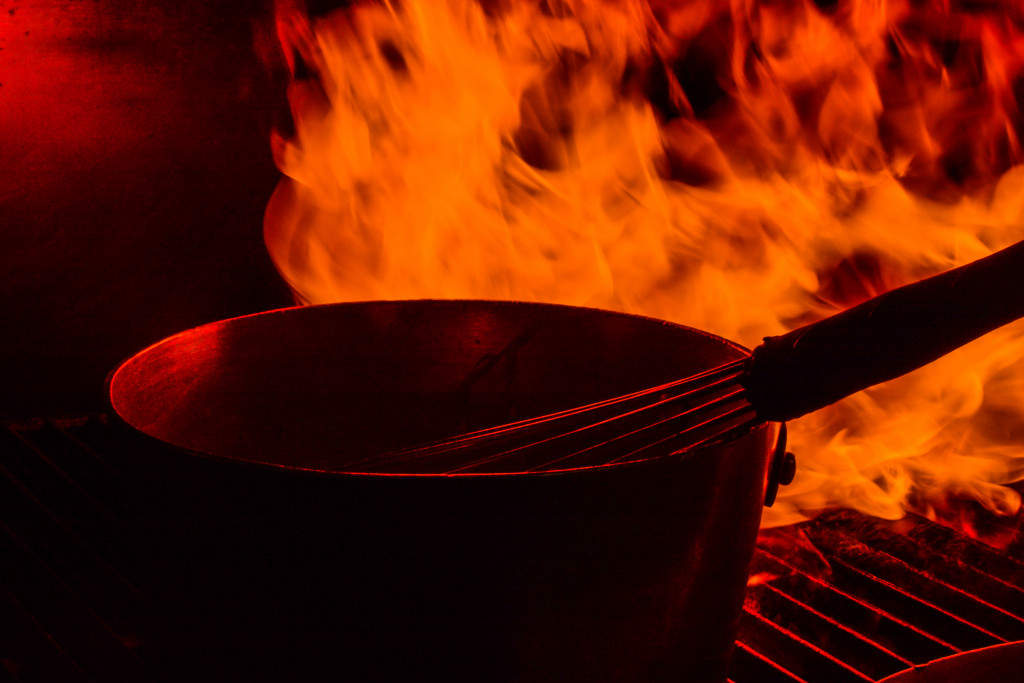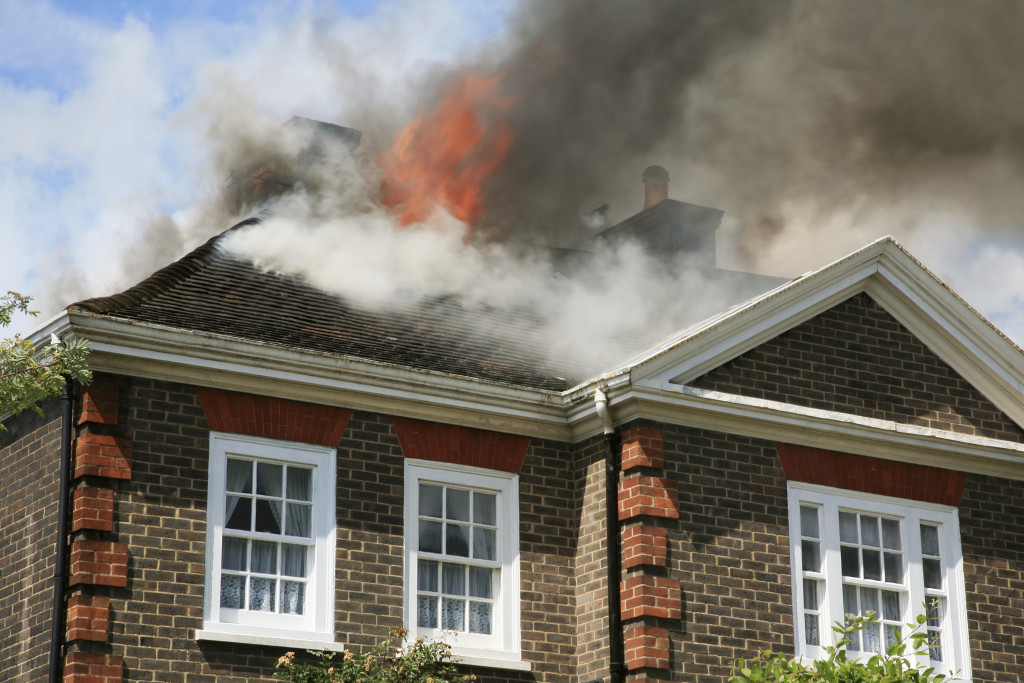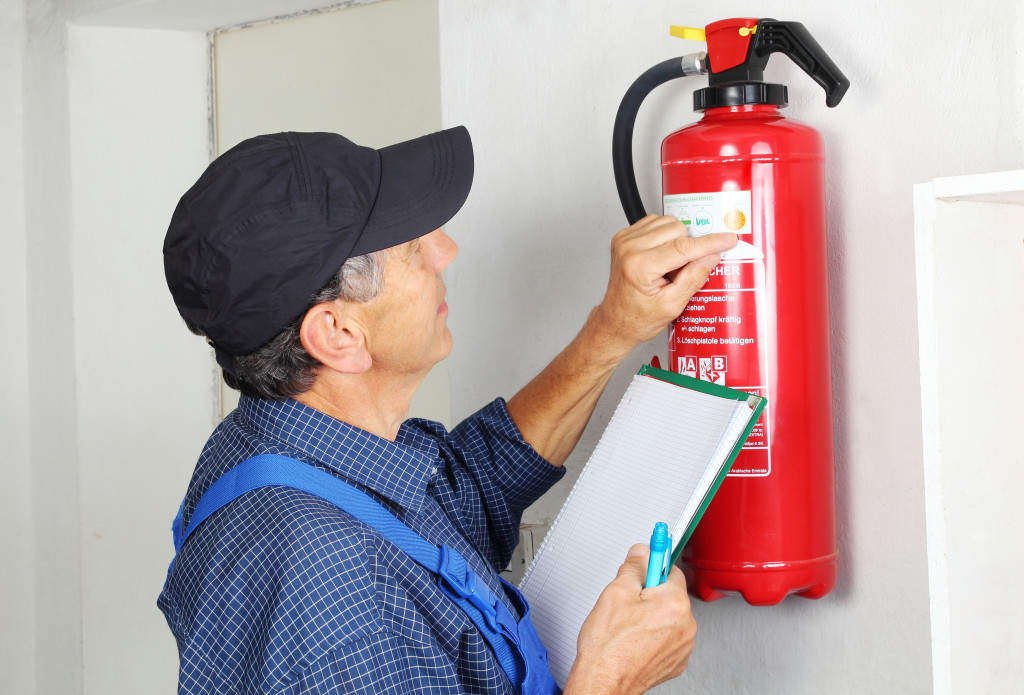- Common causes of fire at home: smoking, cooking-related, electrical, candles & open flames, heating & cooling equipment.
- Best practices for fire safety: install smoke detectors, have an emergency plan, practice good habits, keep fire extinguishers handy, and have regular inspections.
- Prevention is key – being aware of potential risks and taking steps to reduce them can help protect your home.
Fires can start anywhere, and they often spread quickly. Sadly, when a fire breaks out in the home, it can have catastrophic effects. You can lose both your material possessions and even your loved ones.
A plan can help you protect yourself and your home from fire incidents, and being prepared is key. In this blog post, you will learn the common causes of fire at home and the best practices you can follow to keep your home safe.
Causes of Fire at Home
Every year, thousands of homes are lost to fire. While some fires are unavoidable, there is a lot that homeowners can do to minimize the risk of fire in their homes. Read below to find out the common causes of fire at home:
Smoking and Smoking-Related Fires
According to the National Fire Protection Association (NFPA), smoking materials are one of the leading causes of residential fires. To prevent these types of fires, smokers need to be extra diligent about extinguishing cigarettes completely and disposing of them safely. It’s also important for smokers to avoid smoking in bed or near flammable materials such as furniture, curtains, mattresses, or pillows.
Cooking-Related Fires

Cooking-related fires account for nearly half of all reported residential fires each year. To reduce the risk of cooking-related fires at home, it’s important to keep an eye on what’s cooking at all times; if you must leave the kitchen while something is cooking, make sure someone else is watching over it. Additionally, it’s helpful to avoid distractions like cell phones or television while cooking and always keep a fire extinguisher accessible if something catches fire.
Electrical Fires
Faulty wiring is one of the leading causes of electrical fires in the home. To prevent these types of fires, it’s essential for homeowners to have their wiring inspected annually by a qualified electrician who can identify any potential problems before they become dangerous. Additionally, homeowners should invest in thermal imaging services annually to detect any potential hot spots on their electrical systems. This procedure is especially important for older homes, as electrical systems tend to be less efficient and more prone to problems over time.
Candles & Open Flames
Candles may seem innocent enough, but if left unattended or placed too close to combustible materials, they can quickly become a severe hazard. To prevent open flame-related accidents in your home, keep candles away from anything that could potentially burn, and never leave them burning unattended – especially when going out or going to bed! Make sure you always blow out candles before leaving any room – no matter how short your trip out might be!
Heating & Cooling Equipment Fires
Heating equipment is another common cause of residential fires during cold winter months. To reduce the risk of heating equipment-related accidents at home, make sure you get your furnace serviced regularly by a qualified technician who can identify any potential problems before they become dangerous! Additionally – always check filters often and keep anything combustible away from heat sources like space heaters or radiators, as these items can easily ignite if too close!
Best Practices for Fire Safety

Now that you know the common causes of fire at home, here are some best practices you can follow to keep your home safe from fire incidents:
Install Smoke Detectors: Make sure that you have a working smoke detector in your home – and test it regularly! Smoke detectors are one of the most effective ways to detect fires before they become too large.
- Have an Emergency Plan: Having a plan in place is essential in the event of a fire. Make sure you have an evacuation plan and that everyone in your home knows what to do in case of a fire.
- Practice Good Habits: Always practice good habits when using flammable materials or open flames like candles, never leave them unattended! Additionally, take extra precautions when using space heaters or other heating sources.
- Keep Fire Extinguishers Handy: Make sure you have fire extinguishers in your home and test them regularly to ensure that they will work when needed.
- Have Regular Inspections: Finally, make sure to have regular inspections of your home by qualified professionals who can identify potential hazards and help you keep your home fire-safe.
The Bottom Line
Fire safety is something that everyone should take seriously, and by following the tips outlined above, you can help reduce the risk of fire in your home and protect yourself, your family, and your possessions. Remember: prevention is key! Being aware of potential risks and taking steps to reduce them can go a long way in ensuring the safety of your home.
